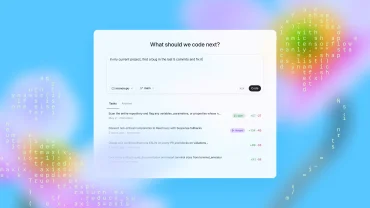
- AI
OpenAI to Launch AI Browser to Challenge Google & Perplexity
5 minute read

OpenAI’s AI browser launch leverages ChatGPT’s 400 million users to reshape how people navigate and interact with online content
Key Takeaways
- OpenAI launches AI-powered browser in coming weeks to directly challenge Google Chrome’s 65-68% market share and 3.45 billion users worldwide
- 400 million weekly ChatGPT users represent potential browser adoption base that could threaten Google’s advertising revenue, which comprises 75% of Alphabet’s total revenue
- AI-integrated browsing experience aims to keep user interactions within ChatGPT-like interface, potentially reducing need for traditional website visits and disrupting current web traffic models
Introduction
OpenAI prepares to launch an AI-powered web browser that directly targets Google Chrome’s dominance in the world’s most valuable digital real estate. The move represents a strategic escalation in the competition for control over how billions of users access and interact with the internet.
This browser launch positions OpenAI to challenge Google Chrome’s commanding 65-68% global market share and access to over 3.45 billion users. The implications extend far beyond browser competition, potentially disrupting the foundational business models that drive digital advertising and web traffic.
Key Developments
The browser integrates artificial intelligence at its core, distinguishing it from traditional browsers that rely on extensions for enhanced functionality. According to Reuters, OpenAI’s offering seeks to transform how consumers browse the web through advanced AI technology.
OpenAI plans to embed its AI agent products, including Operator, directly into the browsing experience. This integration enables the browser to perform tasks on behalf of users, automate workflows, and interact with web content natively.
The browser aims to shift user interactions from traditional website navigation to conversational, AI-mediated experiences. This approach could fundamentally change how users access information and complete online tasks.
Market Impact
Google Chrome currently dominates the browser landscape with 64.86-68.32% of global market share, while Safari holds approximately 16% as the distant second competitor. Chrome’s Android version alone commands over 40% of the mobile browser market.
The stakes involve Google’s core revenue streams, as advertising constitutes approximately 75% of Alphabet’s total revenue. Chrome’s integration with Google’s ecosystem facilitates vast behavioral data collection, which proves critical for targeted advertising success.
OpenAI’s entry threatens this model by potentially converting a portion of ChatGPT’s 400 million weekly active users into browser users. Even modest adoption rates could erode Google’s dominance and impact key revenue streams.
Strategic Insights
OpenAI’s browser strategy centers on securing direct access to user data, a cornerstone of Google’s advertising and search business model. The company seeks to disrupt current web traffic patterns by keeping interactions within AI-driven interfaces.
The timing coincides with regulatory uncertainty surrounding Google Chrome and Apple’s consideration of expanded OpenAI partnerships. Apple recently announced Safari upgrades for iOS 26 and macOS Tahoe, indicating intensifying competition across the browser ecosystem.
Product differentiation focuses on AI-native features that summarize and interact with web content, potentially reducing users’ need to visit external websites. This capability could fundamentally alter how digital advertising and web traffic models operate.
Expert Opinions and Data
Industry observers express cautious optimism about OpenAI’s browser potential while raising privacy concerns. Privacy advocates warn that a browser designed to contain user interactions within an AI agent could create new challenges around data collection and algorithmic control over information access.
Market analysts note that 83% of all browser usage relies on Chromium-based technology, giving Google significant influence over web standards. This dominance creates both opportunities and challenges for OpenAI’s differentiated approach.
The broader industry trend toward embedding AI more deeply into core consumer products supports OpenAI’s strategic direction. Recent developments include OpenAI’s completion of its acquisition involving Jony Ive and Sam Altman’s hardware startup, with the announcement stating “Jony Ive and LoveFrom remain independent and have assumed deep design and creative responsibilities across OpenAI.”
Conclusion
OpenAI’s browser launch represents a calculated challenge to Google’s web dominance, with implications extending across digital advertising, user data collection, and internet navigation patterns. The company’s 400 million weekly ChatGPT users provide a substantial foundation for potential browser adoption.
The success of this initiative will determine whether OpenAI can translate its AI leadership into meaningful market share gains against entrenched competitors. The financial stakes involve billions in advertising revenue and the fundamental structure of how users interact with digital information.







